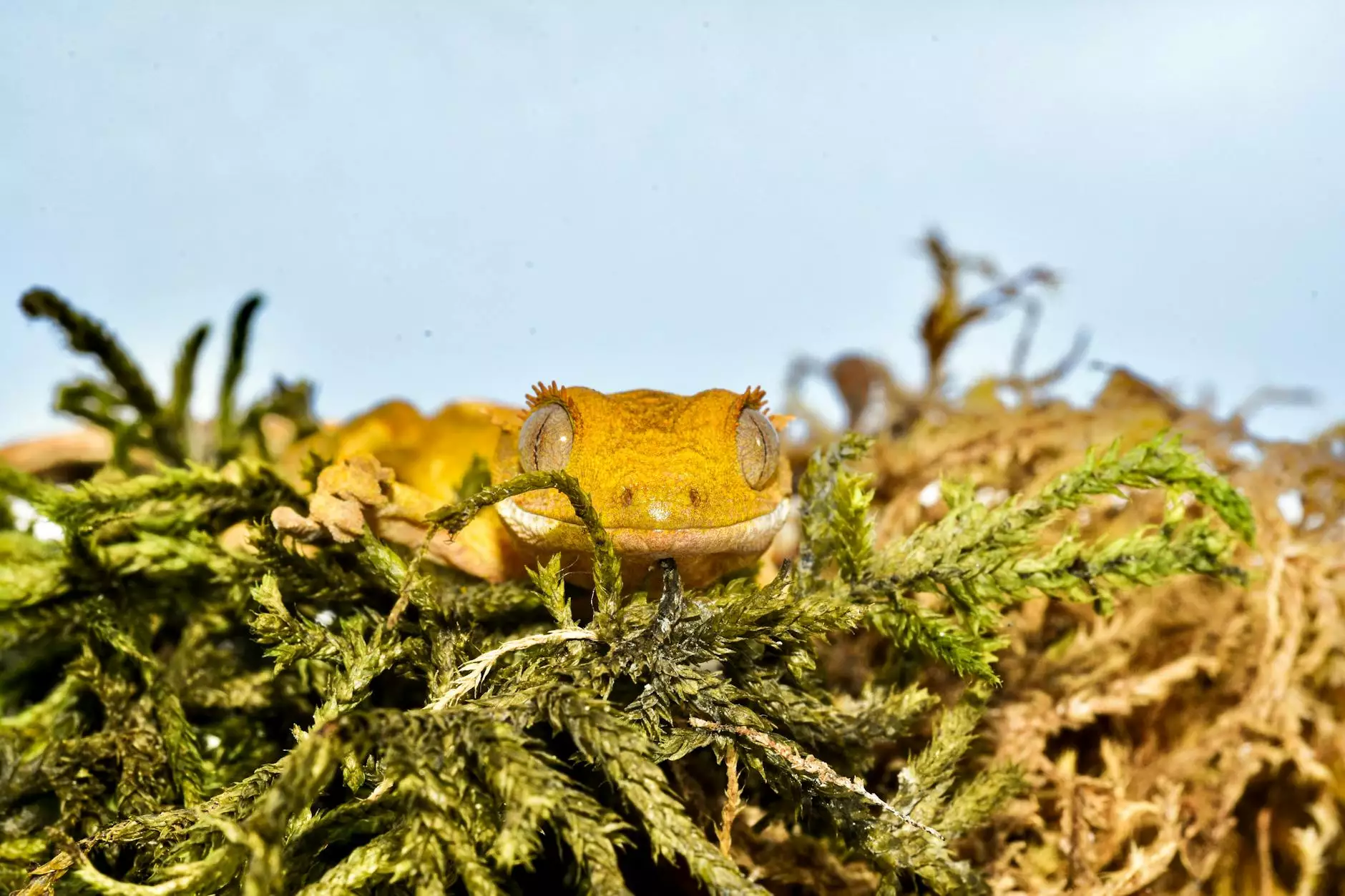The Ultimate Guide to Owning a Gecko for Pets

In recent years, the popularity of reptiles as household pets has soared, and among these fascinating creatures, the gecko stands out as a top choice for many pet enthusiasts. With their vibrant colors, unique behaviors, and relatively low maintenance, geckos have become a favorite among both novice and experienced pet owners. In this comprehensive guide, we will explore why geckos make wonderful pets and delve into the essential aspects of gecko care, their habitat needs, feeding requirements, and the captivating characteristics that make them the ideal companion.
Why Choose a Gecko for Pets?
When considering a gecko for pets, it's essential to understand what makes these reptiles so special. Here are some compelling reasons to keep a gecko:
- Low Maintenance: Geckos require less upkeep compared to traditional pets like dogs and cats.
- Space Efficient: They thrive in smaller habitats, making them ideal for apartments or homes with limited space.
- Diverse Species Options: With over 1,500 species of geckos, there is a variety of colors, sizes, and temperaments to choose from.
- Non-Intrusive Companions: Geckos don’t need social interaction like dogs, making them perfect for busy lifestyles.
- Educational Opportunities: Owning a gecko provides a fantastic opportunity for families to learn about reptile care and biology.
Popular Gecko Species for Pets
When looking for a gecko for pets, it’s crucial to choose a species that best fits your lifestyle and experience level. Here are some of the most popular species:
1. Leopard Gecko (Eublepharis macularius)
Leopard geckos are among the most popular pet geckos due to their friendly disposition and ease of care. They have a distinctive spotted pattern and come in various colors. Their docile nature makes them suitable for handling.
2. Crested Gecko (Correlophus ciliatus)
Crested geckos are known for their striking appearance, with a unique "crest" of skin along their backs. They are nocturnal and can be very social, making them enjoyable to watch and handle.
3. Bearded Gecko (Pogona vitticeps)
Though not a true gecko, bearded dragons are often included in discussions about reptiles as pets. They are friendly and interactive, making them a favorite among families.
4. Gargoyle Gecko (Rhacodactylus auriculatus)
These geckos are slightly more complex to care for but are renowned for their beautiful colors and patterns. They are great for enthusiasts looking to expand their reptile experience.
Setting Up the Perfect Habitat for Your Gecko
A proper habitat is vital for the health and happiness of your gecko for pets. Here’s how to set up the ideal environment:
1. Tank Size and Type
Smaller gecko species, like the leopard gecko, can thrive in a 20-gallon tank, while larger species may need a 40-gallon breeder tank. Glass terrariums with a secure lid are recommended for visibility and ventilation.
2. Substrate Selection
Choosing the right substrate is essential. For many gecko species, options such as:
- Coconut Fiber: This eco-friendly substrate retains moisture and helps maintain humidity levels.
- Paper Towels: Easy to clean and not a risk for ingestion.
- Reptile Carpet: Reusable and provides a comfortable surface.
3. Temperature and Lighting
Geckos are ectothermic, meaning they rely on their environment to regulate their body temperature. Create a temperature gradient within the tank:
- Warm Side: Maintain temperatures between 88°F and 92°F using heat mats or bulbs.
- Cool Side: Should be around 70°F to 75°F.
Ensure that your gecko has access to both warmth and cooler areas to regulate its body temperature effectively.
4. Hiding Spots and Climbing Areas
Provide plenty of hiding spots using rocks, logs, or commercial reptile hides. Climbing opportunities are essential for species like crested geckos, which enjoy climbing decor such as branches and vines.
Feeding Your Gecko
Your gecko for pets will thrive on a balanced diet that mimics its natural food sources. Here's what to know about feeding your gecko:
Dietary Needs
- Insects: Crickets, mealworms, and waxworms should form the base of their diet. Dust these insects with calcium and vitamin supplements to ensure proper nutrition.
- Commercial Diets: Some gecko species, especially crested geckos, can thrive on pre-made commercial diets designed for reptiles.
Feeding Frequency
Juvenile geckos require daily feeding, while adults can be fed every other day. Always ensure that fresh, clean water is available, as hydration is crucial for their health.
Handling Your Gecko
Handling your gecko for pets correctly is vital to build trust between you and your new companion. Here are some handling tips:
1. Time of Day
Geckos are generally nocturnal. Handling them in the evening when they are more active can lead to a more enjoyable experience.
2. Gentle Approach
Always approach your gecko slowly and casually. Use both hands to support their body, allowing them to feel safe and secure.
Common Health Issues in Geckos
Like all pets, geckos can face health challenges. Being aware of common issues can help you manage their well-being:
1. Metabolic Bone Disease
This condition arises from calcium deficiency and can lead to serious health problems. Ensure that your gecko receives proper calcium and UV light exposure.
2. Respiratory Infections
Symptoms include wheezing or lethargy. Ensure your gecko's habitat is not too humid or poorly ventilated.
3. Parasites
Regular check-ups with a vet can help catch and treat parasite infestations early. Signs include weight loss and abnormal feces.
Conclusion
Owning a gecko for pets can be a rewarding and enriching experience. With the right care, habitat, and attention, these unique creatures can thrive as beloved companions. Whether you are drawn to their vibrant colors, intriguing behaviors, or the challenge of creating their ideal environment, geckos offer something for everyone. As you embark on or continue your journey with a gecko, remember to continually seek knowledge and provide a loving and suitable home for your pet.
For those interested in acquiring a gecko, be sure to check out trusted sources and breeders who prioritize the health and well-being of their reptiles. Happy herping!









